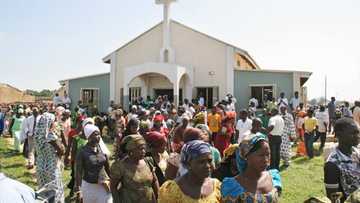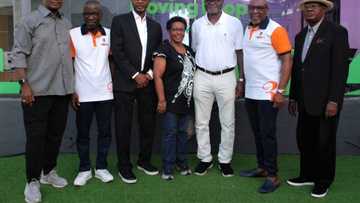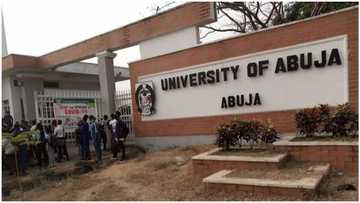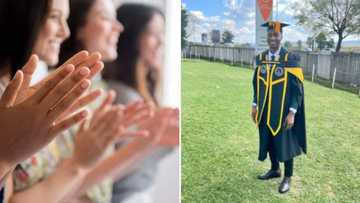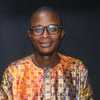Stakeholders, media meet as UNILAG tasks researchers on making impacts to achieve SDGs
It was a gathering of stakeholders in academia and the media industry on Wednesday, June 8, at the University of Lagos (UNILAG) as the institution tasked researchers to make greater impacts toward achieving the Sustainable Development Goals (SDGs).
PAY ATTENTION: Click “See First” under the “Following” tab to see Legit.ng News on your Facebook News Feed!
Legit.ng reports that Deputy Vice-Chancellor, Management Services of the institution, Prof. Obinna Chukwu, made the call at a two-day workshop organised by the university.
The institution organised the event in collaboration with the International Research and Exchanges Board in Lagos.
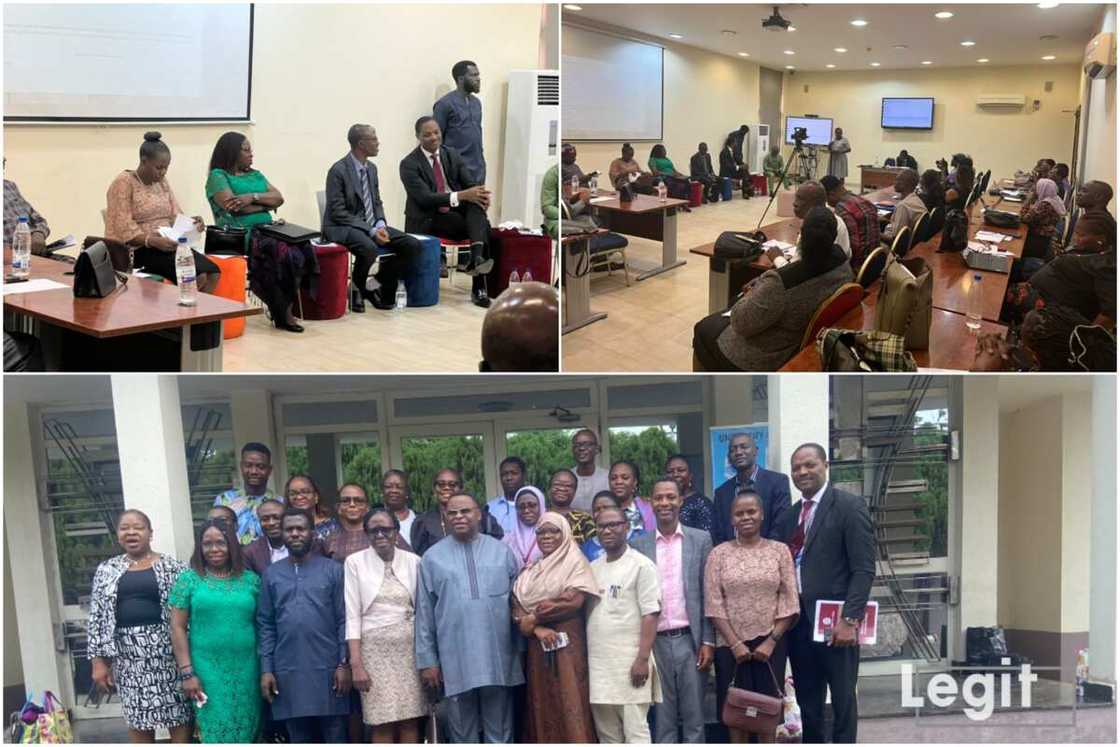
Source: Original
The theme of the workshop is “CO-creating a Research Communication Strategy for Greater Impact”.
He said all researches must be relevant to the society if researchers truly want to be seen as relevant in terms of tackling societal challenges, adding that a major way to achieve the impact would be through robust communication strategies.
PAY ATTENTION: Subscribe to Digital Talk newsletter to receive must-know business stories and succeed BIG!
Chukwu said:
“I will simply describe this interactive workshop as a welcome development in the sense that the University of Lagos is gradually moving toward a research-intensive hub.
“There is a very compelling need to disseminate research activities and outcomes to the general public. This workshop is indeed a wake-up call for us, researchers, to ensure that researches we engage in should have that needed impact.
“When you do that, communicating such research outcomes becomes easier, as you can easily see the relevance of researches; so overall, I think it is a huge step in the right direction,” he said.
The deputy vice-chancellor said that he was happy that the university was deepening communication of research activities.
He added:
“I can tell you that when research outputs are properly reported and the relevance of the report bears upon individuals, it goes a long way to drive more research activities that will not only be locally-relevant, but also globally significant.
“Here, in UNILAG, there is a deliberate policy for us to make the institution not only be a conventional university, but also research-driven and entrepreneurial.”
Also speaking, Prof. Wellington Oyibo of UNILAG, said that the university was in dire need of partnership with the media for effective research communication.
He said.
“We know as researchers or an institution that we are in an ecosystem where the media is part of. What we are trying to bring out is awareness that we must work together."
Oyibo, UNILAG’s director of D. K. Olukoya Central Research Laboratory, said that there was need for both researchers and media professionals to work together.
A panelist at the workshop, Mrs Ijeoma Popoola, advised both researchers and journalists to guard against ambiguity in communicating research.
She urged multi-media approach in communicating research, adding that inclusion of pictures and videos of research activities would drive impact.
Popoola noted:
“Many news items compete for limited media space or time. Securing media space or time requires clarity of the message. Doing this will significantly increase impact.
“Also, the research should involve a major discovery. It must be something new or have a fresh angle to an existing situation. The impact the research will have in the society should be played up.
“How the research will affect the society is important. The more the number of people likely to be impacted by a research, the more chances it will have to secure media space and time."
Popoola, a deputy Editor-in-Chief at the News Agency of Nigeria, advised UNILAG and its researchers to involve journalists in their research activities from the onset.
According to her, this will enable the journalists to report the commencement of the studies, hindrances, such as funding, and other aspects of the study requiring publicity.
Popoola said an immersion programme on research reporting for selected journalists, would enable them to learn research terminologies and be able to interpret them effectively to the general public.
Another panelist, Abigail Ogwezzy -Ndisika, a Professor of Mass Communication at UNILAG, said that the media should be involved from the start of every research activity, urging effective implementation science which she said, involved various levels.
She said that research fund donors, those with technical support, as well as allies in the private sector, should be involved in research communication.
She stated:
“It is a whole gamut. It is a whole component. I think we are beginning to get things right. We are beginning to look at the fact that implementation science is the way to go.
“The old method of just putting research outcomes on the shelves, putting them out for conferences, publishing them in scholarly journals and all of that, are counting numbers, but not every number counts.
“Where is the impact? What we are saying in effect is that every research we are doing in the university should be about SDGs.”
A co-convener of the workshop, Bolarinwa Ajigboye, expressed delight at the turnout of participants and the robust conversation recorded.
He said that the university would continue to improve in its research activities by deploying necessary tools to support efforts of researchers.
Ajigboye said that all hands were on deck to take the university to an enviable height and make it a research hub in Africa and the world at large.
At the end of the programme, three stakeholders were identified - the researchers, the media and the university management.
It was agreed that the communication strategy must incorporate the following for the stakeholders:
The researchers (academia)
Media communication, according to the stakeholders at the event, must be included at point of proposal writing such that media persons are included as personnel on the project, communication cost must be included in the budget, research objectives must include proposed impact
The stakeholders also stated that media communication must commence from the period the research is on-going and not just at the end
Also, they maintain that the media persons would help to develop content from research activities, capture report virtually through pictures and videos (hence should be present at crucial research venues) and communicate research output in vocabularies that catch audience attention and provide impactful information about the research.
They said:
“It is important to present research outputs in Factsheet format, in simple terms, for the layman to capture the value. Research dissemination should showcase the impact of the output to the community through media as a priority tool for communication than through research journals
“There must be direct interaction between researchers and the media; researchers must be available always to interact with researchers. Researchers should leverage on partners with media communication strength to help increase channels of dissemination."
The media
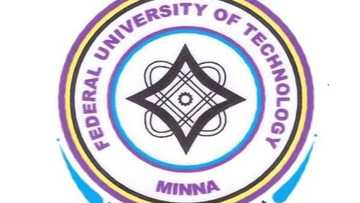
Read also
FUTMINNA eportal: An electronic online platform of the Federal University of Technology, Minna
The gathering also noted that the media need training in research communication to be familiar with terms and vocabulary of different research areas, adding that they must take up University news not based on business interest but on the fact that research is about our future and our life as a nation
It also stated that the media must also make effort to reach out to the University for Research News
The University management
The University has to set up a Research Communication Agency that will understand implementation science and create avenue for researchers to engage the media, saying that the University should create a reward system for researchers who do research communication through media
The University must budget for media communication and create incentives for media personnel beyond monetary exchanges, adding that it must regularly showcase public figures in the University as well as key University visitors to draw attention of the media to the University.
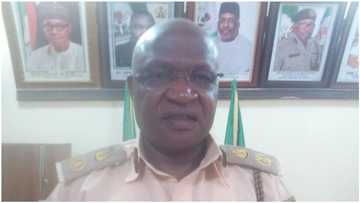
Read also
Do not compare yourself with others - Immigration boss gives 10 rules to a successful career
Young man who’s maximising ASUU strike to boost his business speaks
Meanwhile, Legit.ng had previously reported that a Nigerian man who is also an undergraduate at the University of Lagos (UNILAG), Olayinka, in an interview spoke about his shoe-making business and how his tweet which went viral days ago boosted sales for him.
It was reported that while explaining how it all began, Olayinka revealed that he has been making shoes since 2016 after he finished secondary school.
The hardworking Nigerian man said that he already had shoemaking in mind before graduation. Olayinka revealed that his first interest was in bag making but that changed when the cost of apprenticeship was high.
Source: Legit.ng


